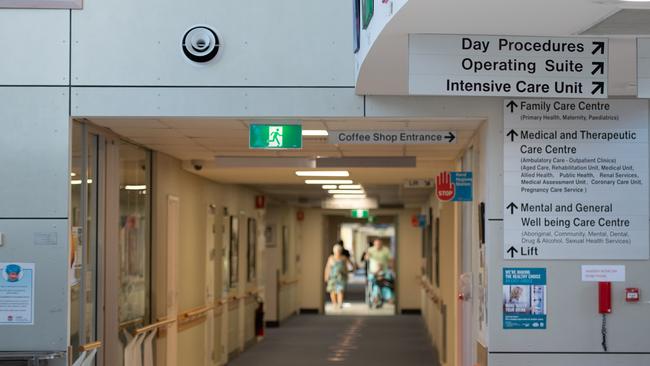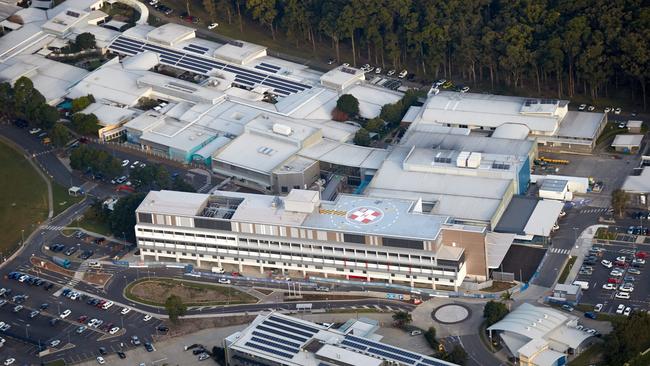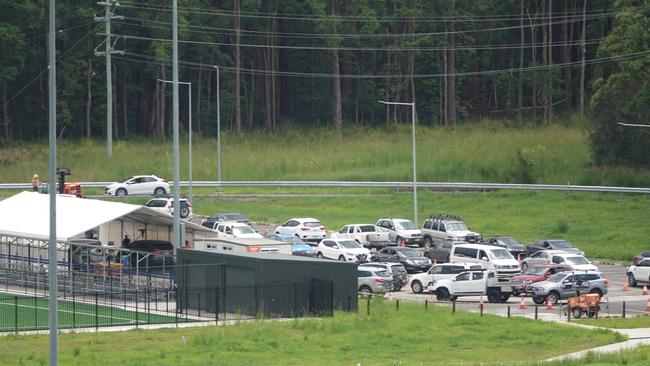Covid v flu: The facts for the Mid North Coast
From Coffs Harbour to Port Macquarie and beyond, Covid numbers have exploded. But let’s not get complacent about the flu, either. Here’s why.
Coffs Harbour
Don't miss out on the headlines from Coffs Harbour. Followed categories will be added to My News.
Keyboard warriors and anti-vaxxers have raged long and hard through the pandemic - frequently comparing Covid with influenza.
As it’s said with all wars, the first casualty in the battle with coronavirus has been the truth.
Many have seen the commentary from all sorts of suitably unqualified people that having Covid-19 is akin to a mild dose of the flu.
That is the case for some. Others show no symptoms at all. And some die (the debate of whether someone perishes ‘from’ Covid or ‘with’ it is for another time).
We put a series of questions to the local Mid North Coast Local Health District in a bid to take the temperature of what’s actually been happening on the Covid and flu fronts in recent years.

The numbers are illuminating.
Covid was slow to get a foothold on the Mid North Coast, with comparatively few numbers in the first two years after the virus landed in Australia.
All that changed in 2022, as Covid infections basically exploded from Coffs Harbour to Port Macquarie and beyond.
From January 1 this year there have been 42,276 cases of Covid reported in the Mid North Coast Local Health District. In 2021, there were 2272 cases and 53 cases in 2020.
The flu by comparison, has just about disappeared locally during the Covid years.
Since January 1, there have been 48 flu cases reported in the Mid North Coast Local Health District (MNCLHD), with 41 of these reported in the past fortnight.

The winter flu seasons of 2020 (106) and 2021 (less than five) had a low number of cases likely due to Covid lockdowns, social distancing and better hygiene awareness. And importantly, because of restrictions on international travel.
A more typical flu situation on the Mid North Coast is reflected in the pre-Covid years.
In 2017, the district recorded 1616 cases in 2017, and 1783 in 2019.
Local health district chief executive Stewart Dowrick encourages residents to guard against the flu as it is likely to return in a significant way with the resumption of international travel.
NSW Health has been advising for some time that influenza cases are increasing rapidly across the state, including on the Mid North Coast, and it is trending to be an early flu season.
To that end, the North Coast Public Health Unit urges people to get their flu vaccination and make sure they are up to date with Covid boosters as the local population faces a war on two fronts heading into winter.

Mr Dowrick said vaccination affords important protection for people of all ages against severe illness from influenza, and it is particularly critical for those more vulnerable.
Everyone six months and older is recommended to get a flu shot.
Vaccines are available for all ages through GPs and Aboriginal medical services, and pharmacies for everyone aged 10 years and over.
The Australian Technical Advisory Group on Immunisation (ATAGI) strongly recommends influenza vaccination, and particularly for those in higher risk groups.
Those considered to be at higher risk of severe illness from influenza are eligible for a free flu vaccine. This includes:
• Aboriginal and Torres Strait Islander people from six months of age
• Children from six months to under five years of age
• People from six months of age with serious health conditions (including severe asthma, diabetes, cancer, immune disorders, obesity, kidney, heart, lung or liver disease)
• Pregnant women (at any stage of pregnancy), and;
• People aged 65 and over.

“The population rate of influenza testing has been considerably lower than that for Covid-19, so a direct comparison of the number of notifications for each of these conditions is not possible,” Mr Dowrick said.
Aside from getting vaccinated, there are a number of things local residents can do to try and protect themselves.
NSW Health advises:
• Stay at home if you are sick and avoid close contact with other people to protect yourself and the community from flu and Covid
• Wear a mask indoors if you are unable to physically distance
• Gather in well ventilated spaces or open windows and doors
• Sneeze into your elbow instead of your hands, and;
• Wash your hands thoroughly and often (just like mum used to tell you).




